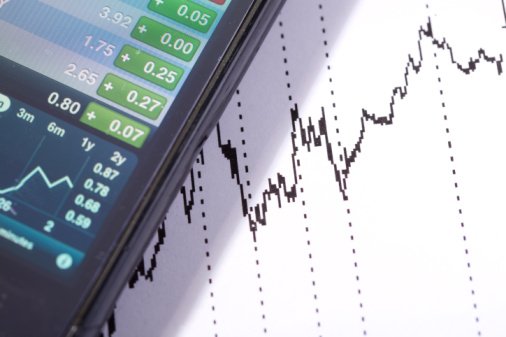by Franklin Templeton Investments
The Digest
After the remarkable prior week in the aftermath of the Pfizer vaccine news, last week was more orderly, although with similar themes driving markets. We had more positive vaccine headlines (Moderna, and more Pfizer detail), Donald Trump refused to concede the US presidential election, COVID-19 trends remain concerning, and Brexit remained a focus for the United Kingdom and European Union (EU). On the week, the MSCI World Index traded +0.4%, S&P 500 Index -0.8%; STOXX Europe 600 Index +1.2%; MSCI Asia Pacific Index +2.1%.1
European Geopolitics in Focus
EU budget dispute: This past week saw a dispute between the EU and the populist, right-wing governments of both Hungary and Poland, which threatens to delay approval of the €1.8 trillion budget (including the €750bn COVID-19 Recovery Fund). Poland and Hungary objected to the inclusion of a ‘rule of law’ mechanism linking payment of EU money to adherence to EU rules (e.g., ensuring an independent judiciary). The Polish government said the EU was using this as a ‘propaganda stick’ against its country.
German Chancellor Angela Merkel and European Commission President Ursula von der Leyen have vowed to resolve this issue ahead of the EU summit on 10-11 December. However, with Brexit and the COVID-19 crisis, this is another challenge the EU could do without at this time. Expectations would be for compromise on wording, but any prolonged delay would be an unwelcome headwind for European assets into year-end.
As a reminder, the COVID-19 Recovery Fund accounts for €750 billion of the budget, with €390 billion in the form of grants to member states (the rest will be loans). Recall that the member states had a to-and-fro over how much should be grants vs. loans, with the ‘frugal four’ (Denmark, the Netherlands, Austria and Sweden) successfully reducing the proportion of grants down from the original proposal of €500 billion grants/€250 billion loans split. This €390 billion is to be funded by new EU bonds over the coming years.
A small amount of the first EU debt was issued a few weeks ago, with €17 billion raised amid demand for €233 billion. We think this is interesting as it shows market confidence in the EU ‘project’. The debt will eventually be repaid by funds from new EU taxes (potentially digital, carbon, financial transactions, etc.) but details are yet to be confirmed.
The balance of €1.07 trillion is regular budgeting. It is the 2021-2027 EU seven-year financial framework and to be used for regular programmes, agriculture, regional and structural support, education, research, etc.
Brexit: Closer to Crunch Time, Really This Time!
We have been saying it for many, many months now, but Brexit really is getting to a pinch point in negotiations. A deal still needs to be agreed and ratified before the 31 December deadline. Last week, as negotiations continued, we saw the usual high-level soundbites indicating one way and then the other without any real substance. Talks did end abruptly on 19 November as the EU team had to self-isolate after being exposed to someone positive with COVID-19. Talks will now have to continue virtually. Notably, over the weekend, UK Chancellor of the Exchequer Rishi Sunak played down the risk of a no-deal.
So, What Can We Expect in the Coming Weeks?
Should we get a deal in the coming weeks, it would need to be ratified by both the EU Council and Parliament. There is still some debate whether the deal will be an EU-only agreement or mixed agreement (meaning shared responsibility of EU institutions and individual EU countries).
Should the agreement be mixed, then national and regional parliaments must also ratify for the agreement to be applied in full. EU leaders will also give their approval, likely done via the conclusions of a European Council summit (the next one being 10-11 December).
Following the approval from the respective EU governments, the agreement is sent to the European Parliament for its consent. The scrutiny given to the agreement at this stage could take weeks; however, given the urgency at this stage, it is likely some creative solutions would be found to meet the deadlines should we get to that stage. The UK Parliament has to approve the legislation needed to put any trade deal on the statute book; it is assumed this process would be complete before the Parliament goes into recess on 20 December.
For markets, the risks remain to the downside. The expectation is still that a deal of some variety will be agreed at the ‘eleventh hour’ and will be pushed through all the red tape in time for 31 December.
Sterling was stronger last week vs the US dollar and is stronger again this morning on optimism around talks. Any sterling strength in the coming weeks will likely keep the FTSE 100 Index in check given the skew towards dollar-earners.
Looking to Year-End
As we approach the US Thanksgiving holiday and the last month of 2020 (thankfully), we thought it would be beneficial to take stock of catalysts into year-end. Looking at historical averages, equity markets tend to enjoy a ‘Santa Rally’ into year-end. But, given this is 2020, we can assume nothing!
COVID-19 remains a concern for Europe and the United States: Whilst the vaccine news means the picture looks much improved longer term, it will be 2021 before the majority see the benefits. In the meantime, COVID-19 figures remain bleak in Europe and the United States going into year-end. The second wave in Europe has seen daily global deaths peak once again. The impact of economic shutdowns will be key to watch in macro data. In contrast, cases in Asia remain low and contained, supporting sentiment there.
US Politics: US President Donald Trump continues to contest the recent election result, despite dwindling legal options. Further states will ratify their votes this week; then, the key date to watch will be the 14 December Electoral College announcements. It is hard to see Joe Biden not being confirmed the winner. All then all eyes will then be on President Trump’s response. Linked to the outcome of this is the ongoing impasse of the fiscal stimulus package, where signs of progress would be significant.
Europe Geopolitics: Besides US politics, for Europe, the outcome of Brexit talks will set the tone for UK and EU equities. EU assets face the additional challenge of EU budget talks.
Central Banks: With lockdowns in place across Europe and an increasing number of US states adding fresh measures, investors will continue to look to central banks to bridge the gap until vaccines can be rolled out globally. We have the European Central Bank (ECB) meeting on the 10 December and Federal Reserve on the 16 December. You would imagine they will remain focused on keeping monetary supply high.
So, we face an interesting end to a tough year, for now investors appear to be in a more positive state of mind, with the CNN Fear & Greed Index in ‘greed’ territory post the recent vaccine news.
The Week in Review
United States
US equity markets took a breath last week, with the S&P 500 Index closing down 0.8%. Despite the strong month so far (S&P 500 Index up 8.8% in November as of the close of business on 20 November), [highlight] a clear push and pull remains as investors try to make sense [/highlight] of what the vaccine announcements mean in the face of escalating COVID-19 infection rates.
The Pfizer and Moderna efficacy rates are supportive, but the question is how much help can that be in the short-to-medium term and in the face of fresh US daily infections highs of 199,000 on Friday last week. Hospitalizations are also at record highs, breaking through 80,000 at the end of last week.
Nonetheless, President-elect Joe Biden re-iterated that he had no plans for an economic shutdown when he gets into office.
In terms of sector moves last week, the value rotation wasn’t quite as evident in the United States as it was in Europe. Instead, it was back to the old growth stocks vs. defensives moves, with the former outperforming. With that, energy stocks were the clear winner, with the sector up 5% on the week amid rising oil prices. Materials and industrials were also up last week, whilst utilities were the main laggard, down 3.9%. Health care, real estate investment trusts and consumer staples also were all down.
Possibly the most notable headline out of the United States last week was on the news that the US Treasury would not be extending several of the Fed’s emergency credit programmes beyond year-end. This move essentially closes down the facilities which helped support markets in the spring.
Treasury Secretary Steven Mnuchin also asked that the Fed return any unused Coronavirus Aid, Relief and Economic Security (CARES) Act risk capital. Mnuchin said this will allow Congress to re-appropriate US$455 billion. In response, Fed Chair Jerome Powell said that the money would be returned and the decision to wind down the lending programmes meant that the central bank would consider providing further support to the economy. This is even more likely given the impasse on fiscal support and the worsening COVID-19 outbreaks. Yet, with a new administration only two months away, it is thought that such disagreements may just be temporary.
Europe
With more positive vaccine news on 23 November, rotation into value continued and European equities closed higher for the third week in a row, despite a choppy week of trading and some consolidation on Thursday. The move higher on the latest vaccine news was less pronounced than the previous week (with much priced in) and things generally felt more orderly.
The STOXX Europe 600 Index is on track for its best month on record. Alongside this, European ETFs enjoyed their largest weekly net inflows since December last year. Oil and gas stocks, autos, and banks outperformed as part of the value/cyclical rotation, whilst the defensive names underperformed (health care and food & beverage stocks were lower).
Despite the positive vaccine news, the level of global deaths from COVID-19 continues to rise and is now above the peak earlier in the year, so there remains potential for further volatility and headwinds. Cases in Europe have started to level off following the latest imposition of restrictions, but there are fresh concerns over the impact of this on the economy.
On 20 November, the International Monetary Fund (IMF) and G202 warned that there are ‘signs that the recovery may be losing momentum and the crisis is likely to leave deep, unequal scars’. The IMF also noted that elevated asset prices point to a disconnect from the real economy and a potential threat to financial stability.
Another potential headwind for certain regions is how many people will be willing to take any vaccine. According to one study, only four out of 10 French people are planning to get vaccinated. There are also the obvious questions over time scale, supply and delivery. With this, alongside uncertainty over the EU budget and Brexit negotiations, we did see some of Monday’s gains eroded. Investor appetite for Europe remains limited, with global investors reducing their eurozone net exposure. The United Kingdom remains particularly unloved (unsurprising with the Brexit overhang) as UK Consumer Confidence hit six-month lows.
Asia Pacific (APAC)
Equities in the APAC region were broadly higher, marking a third consecutive week of gains for the MSCI APAC Index. Gains in Japan were more muted, with a record spike in daily virus cases midweek seeing the Nikkei Index underperform. Cases are also on the increase in South Korea and Hong Kong. Caution over the rise in cases has now led to the postponement of a planned Hong Kong-Singapore travel bubble. On the macro front, Japan’s manufacturing Purchasing Managers’ Index (PMI) fell to 48.3 in November from 48.7 in October, ending five consecutive months of improvement. The services PMI also disappointed, with the resurgence in cases starting to take its toll.
Chinese vaccine makers underperformed last week, weighed upon by the positive headlines from global rivals. An index tracking 14 vaccine producers listed in Shanghai and Shenzhen is down 11% since the Pfizer headlines earlier this month. Interestingly, the development of vaccines by Chinese firms has been made more difficult because of the country’s successful containment of the virus. With local cases close to zero, final-stage trials (which focus on efficacy in the general population) had to be undertaken in other countries, leading to delays.
Meanwhile, as President Trump approaches his final days in the White House, more executive actions are expected which could include more measures against China—something to keep an eye on.
The Week Ahead
Despite the US Thanksgiving holiday, we expect a busy week in Europe with headline risk from both Brexit and EU budget talks. In addition, COVID-19 trends should drive sentiment, with any signs that lockdowns are working in Europe likely taken well.
PMI data across Europe has just come in as we start the trading week. The French composite reading (39.9) is back at its worst level since May this year, with the services figure particularly poor at 38.0. Conversely, German PMIs are solidly in expansionary territory, with the composite figure coming in at 52.0, and manufacturing (at 57.9) outweighing services (at 46.3). UK PMIs were better than expected, with the composite figure coming in at 47.4. Both manufacturing and services readings beat expectations.
Calendar
Monday 23 November
- Data: Eurozone PMIs; France PMIs; Germany PMIs; UK PMIs; US PMIs
- Holiday: Japan
Tuesday 24 November
- Data: Germany gross domestic product (GDP), IFO Survey; France Consumer and Business Confidence; US house price index (HPI), Consumer Confidence
Wednesday 25 November
- Economic/Political: US Federal Open Market Committee (FOMC) minutes
- Data: Spain Producer Price Index (PPI); US GDP, Jobless Claims, Personal Consumption/Income/Spending, Durable Goods Orders, New Home Sales
Thursday 26 November
- Data: Germany Consumer Confidence; France Consumer Confidence; Eurozone Money Supply; Japan Machine Tool Orders
- Holidays: US Thanksgiving
Friday 27 November
- Data: China Industrial Profits; Germany Import Prices; France GDP, CPI, Consumer Spending; Italy Consumer and Manufacturing Confidence, PPI; Eurozone Consumer, Economic, Industrial and Services Confidence
Views You Can Use
Insight from Our Investment Professionals
China 2021 Outlook: Pandemic Fuels Momentum for De-Globalization, What’s Next?
The coronavirus has sharpened the divide between China and the rest of the world and accelerated the trend toward de-globalization already in place, according to Franklin Templeton Emerging Markets Equity’s Chetan Sehgal and Michael Lai. They share their outlook for China, how the health care story could continue to unfold there, and the potential opportunities for investors they see in the year ahead. Read More.
Monitoring Biotech’s Race for a Vaccine
After early analysis of a COVID-19 vaccine from two US and German drug makers showed promising results, Franklin Equity Group’s Evan McCulloch and Wendy Lam are optimistic a vaccine could be available for use in the United States under certain circumstances as early as the end of this year. However, they explain why they see manufacturing and distribution challenges that threaten both broader vaccine adoption and the global economy. Read More.
On My Mind: Knowledge Drives Confidence, Confidence Drives Growth
The Franklin Templeton–Gallup Economics of Recovery Study has heralded some interesting results in regard to the attitudes and behaviour of Americans in response to the ongoing pandemic—and what developments could change both. Our Fixed Income CIO Sonal Desai shares her thoughts on the latest wave of survey findings, including the value of trusted advice in navigating financial and investment concerns. Read More.
US 2020 Election Investment Pulse
Resilience and Vulnerability in Emerging Markets
The US elections have implications for emerging markets in the area of global trade relations in particular, but for investors, it’s important to look at countries and companies individually within the asset class, according to Portfolio Manager Andrew Ness. He joins our Head of Equities Stephen Dover to discuss how emerging markets are navigating today’s challenges—including the COVID-19 pandemic—and note they are home to some of the most innovative and resilient companies in the world. Read More.
With yields near zero, many investors may question the value of fixed income within a portfolio. Western Asset’s Head of Product Management, Doug Hulsey, joins our Head of Equities, Stephen Dover, to discuss fixed income investing with an active-management lens. He makes a case for the asset class for investors in light of market uncertainties and outlines where he sees opportunities today. Read More.
Important Legal Information
This material is intended to be of general interest only and should not be construed as individual investment advice or a recommendation or solicitation to buy, sell or hold any security or to adopt any investment strategy. It does not constitute legal or tax advice. The views expressed are those of the team and the comments, opinions and analyses are rendered as of publication date and may change without notice. The information provided in this material is not intended as a complete analysis of every material fact regarding any country, region or market.
Companies and/or case studies referenced herein are used solely for illustrative purposes; any investment may or may not be currently held by any portfolio advised by Franklin Templeton. The information provided is not a recommendation or individual investment advice for any particular security, strategy, or investment product and is not an indication of the trading intent of any Franklin Templeton managed portfolio.
Data from third party sources may have been used in the preparation of this material and Franklin Templeton (“FT”) has not independently verified, validated or audited such data. FT accepts no liability whatsoever for any loss arising from use of this information and reliance upon the comments, opinions and analyses in the material is at the sole discretion of the user. The companies and/or case studies shown herein are used solely for illustrative purposes; any investment may or may not be currently held by any portfolio advised by Franklin Templeton.
Products, services and information may not be available in all jurisdictions and are offered outside the U.S. by other FT affiliates and/or their distributors as local laws and regulation permits. Please consult your own professional adviser or Franklin Templeton institutional contact for further information on availability of products and services in your jurisdiction.
Issued in the U.S. by Franklin Templeton Distributors, Inc., One Franklin Parkway, San Mateo, California 94403-1906, (800) DIAL BEN/342-5236, franklintempleton.com—Franklin Templeton Distributors, Inc. is the principal distributor of Franklin Templeton’s U.S. registered products, which are not FDIC insured; may lose value; and are not bank guaranteed and are available only in jurisdictions where an offer or solicitation of such products is permitted under applicable laws and regulation.
What Are the Risks?
All investments involve risk, including possible loss of principal. The value of investments can go down as well as up, and investors may not get back the full amount invested. Stock prices fluctuate, sometimes rapidly and dramatically, due to factors affecting individual companies, particular industries or sectors, or general market conditions. Bond prices generally move in the opposite direction of interest rates. Thus, as prices of bonds in an investment portfolio adjust to a rise in interest rates, the value of the portfolio may decline. Investments in foreign securities involve special risks including currency fluctuations, economic instability and political developments. Investments in developing markets involve heightened risks related to the same factors, in addition to those associated with their relatively small size and lesser liquidity.
Past performance is not an indicator or guarantee of future performance. There is no assurance that any estimate, forecast or projection will be realised.
Links to External Sites
Franklin Templeton is not responsible for the content of external websites.
The inclusion of a link to an external website should not be understood to be an endorsement of that website or the site’s owners (or their products/services).
Links can take you to third-party sites/media with information and services not reviewed or endorsed by us. We urge you to review the privacy, security, terms of use, and other policies of each site you visit as we have no control over, and assume no responsibility or liability for them.
________________________________
1. Indices are unmanaged and one cannot directly invest in them. They do not include fees, expenses or sales charges. Past performance is not an indicator or a guarantee of future results.
2. The Group of Twenty (also known as the G-20 or G20) is an international forum for the governments and central bank governors from 20 major economies. The members include 19 individual countries—Argentina, Australia, Brazil, Canada, China, France, Germany, India, Indonesia, Italy, Japan, Mexico, Russia, Saudi Arabia, South Africa, South Korea, Turkey, the United Kingdom and the United States—along with the European Union (EU). The EU is represented by the European Commission and by the European Central Bank.
This post was first published at the official blog of Franklin Templeton Investments.














